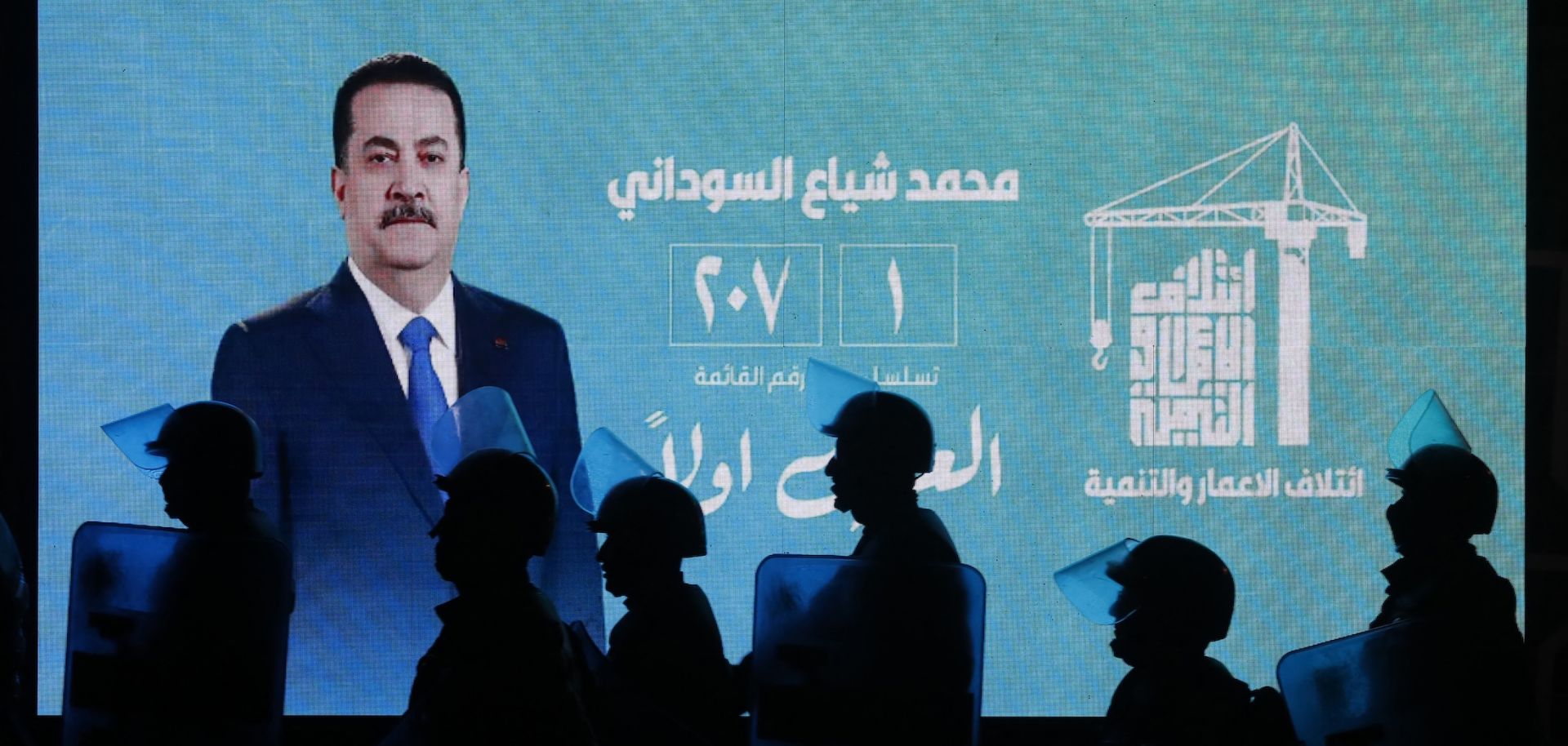The results of Iraq's election portend a highly contentious government formation process in the coming months that could create power vacuums in the interim, hamper policymaking and trigger violence among armed groups. On Nov. 17, Iraq's election commission announced the final results of the Nov. 11 parliamentary elections. Iraqi Prime Minister Mohammed Shia al-Sudani's political alliance, the Reconstruction and Development Coalition, secured the largest number of seats in the 329-member legislature, winning a total of 46. Former Prime Minister Nouri al-Maliki's State of Law coalition came in second with 29 seats, followed by the Shiite Islamist party Al-Sadiqoun with 27 seats, the Sunni-led Taqaddum Party with 27 seats, and the Kurdistan Democratic Party (KDP) with 26 seats. After the results were announced, the ruling Shia Coordination Framework (SCF) -- a loose alliance of Shiite parties that includes the top three vote-getters -- declared itself the largest overall parliamentary faction with...

